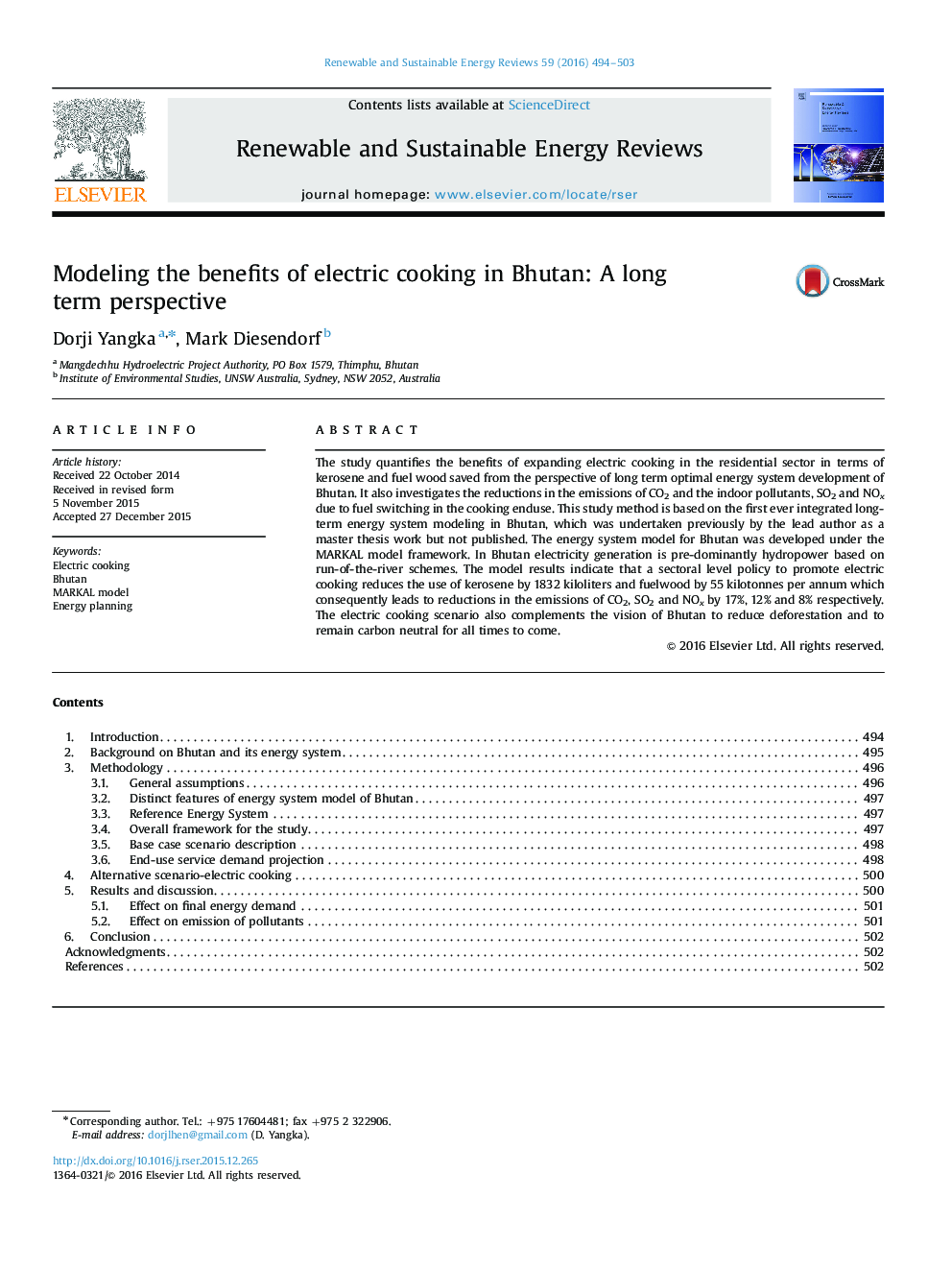| Article ID | Journal | Published Year | Pages | File Type |
|---|---|---|---|---|
| 8114063 | Renewable and Sustainable Energy Reviews | 2016 | 10 Pages |
Abstract
The study quantifies the benefits of expanding electric cooking in the residential sector in terms of kerosene and fuel wood saved from the perspective of long term optimal energy system development of Bhutan. It also investigates the reductions in the emissions of CO2 and the indoor pollutants, SO2 and NOx due to fuel switching in the cooking enduse. This study method is based on the first ever integrated long-term energy system modeling in Bhutan, which was undertaken previously by the lead author as a master thesis work but not published. The energy system model for Bhutan was developed under the MARKAL model framework. In Bhutan electricity generation is pre-dominantly hydropower based on run-of-the-river schemes. The model results indicate that a sectoral level policy to promote electric cooking reduces the use of kerosene by 1832 kiloliters and fuelwood by 55Â kilotonnes per annum which consequently leads to reductions in the emissions of CO2, SO2 and NOx by 17%, 12% and 8% respectively. The electric cooking scenario also complements the vision of Bhutan to reduce deforestation and to remain carbon neutral for all times to come.
Keywords
Related Topics
Physical Sciences and Engineering
Energy
Renewable Energy, Sustainability and the Environment
Authors
Dorji Yangka, Mark Diesendorf,
